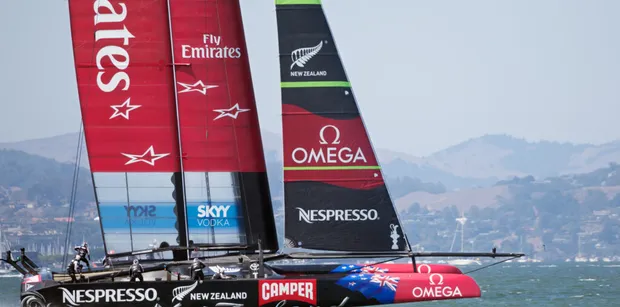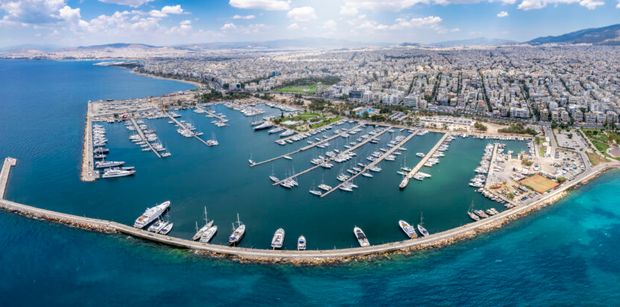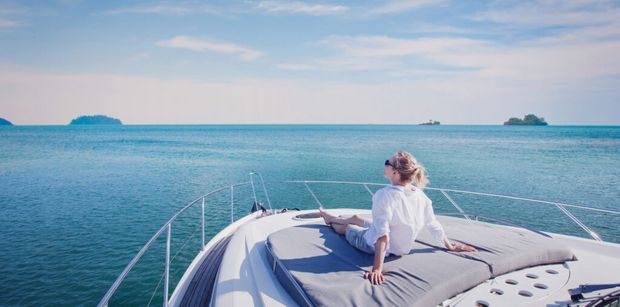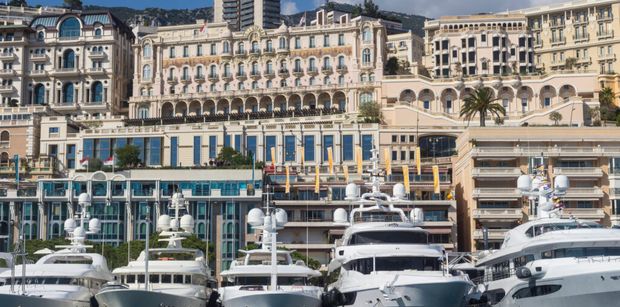The boating industry is making significant strides in adopting more sustainable practices. At the forefront of such revolution is the way we power the fleet. As this is becoming an increasingly important greener agenda topic, Boatbookings is proud to lead the way with our greener crewed catamaran fleet, adopting innovative and eco-friendly alternatives to non-renewable fuel sources. From electric hybrids to biofuels, here we outline an update on the various ways to power the fleet and the potential future of fuels:
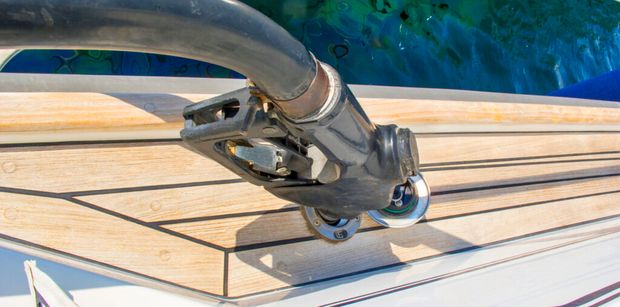
Electric Hybrid
Many of the Boatbookings’ greener fleets feature state-of-the-art hybrid propulsion systems. These innovative boats combine traditional engines with electric motors and high-capacity battery banks, offering the best of both worlds. With these boats, you can cruise silently under electric power and then switch to conventional engines for longer journeys. With solar panels and wind turbines working to recharge the batteries, these boats epitomise flexible, greener cruising.
Methanol
Methanol is emerging as a leading alternative fuel for the boating industry. While it requires more storage space, it offers significant environmental benefits. We are excited to see developments like Sanlorenzo’s Almax 50 Steel, the first yacht to feature a green methanol fuel cell system for zero-impact cruising. This technology allows extended time at anchor without fuel consumption, supporting the hotel loads with minimal environmental impact. Lurssen is another shipyard that has been experimenting with methanol-based fuel cell technology on its Project Cosmos, scheduled for delivery in 2025.
Hydrogen
Hydron fuel cell technology also presents various advantages. Like methanol, while there are challenges in storage and energy generation, pioneering projects like Feadship’s Project 821 are pushing the boundaries of what is becoming possible. These fuel cells produce electricity with water as the only byproduct, offering zero-emission cruising.
Biodiesel
We see some larger yachts transitioning to biodiesel for immediate impact, such as Hydrotreated Vegetable Oil (HVO). These fuels, derived from renewable sources, offer a cleaner burn with significantly reduced emissions. HVO is particularly promising as it can be used as a direct replacement for existing diesel engines with only minor modifications, making it a great option for reducing the carbon footprint of the current fleet. Feadship and Azimut-Benetti are committing to HVO in their current and future yachts.
Nuclear
Nuclear propulsion is also emerging as a viable power source for yachting, offering commercial and operational benefits alongside emissions-free sailing, according to Lloyd’s Register. Their recent report, “Fuel for Thought: Nuclear for Yachts,” highlights nuclear reactors’ potential to revolutionize yachting by providing higher power outputs, longer range, and superior performance. While there are challenges such as public perception and regulatory hurdles exist, the environmental and technological benefits make nuclear-powered yachts a potential prospect for the industry.
Energy Efficiency
Sustainability isn’t just about alternative fuels; it’s also about using energy wisely. Today, yachts are now designed with such efficiency in mind, from LED lighting and smart climate control systems to hull designs that minimise drag. Yacht crew are also now trained in energy-efficient operations, implementing best practices that reduce waste and maximise the use of our renewable energy sources.
Looking Ahead
As technology advances, so does our commitment to greener yachting. At Boatbookings, we continuously explore emerging technologies and incorporate greener vessels into our fleet. Whether that is more efficient solar panel technology, advanced battery technology, or new biofuels, we are dedicated to providing greener options for responsible boating vacations. Contact the Boatbookings team to find out more about our future fleet today.

